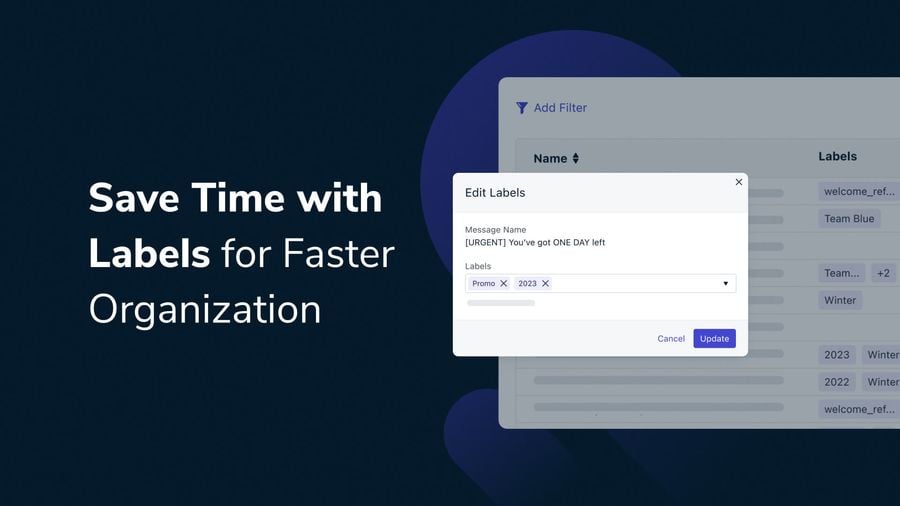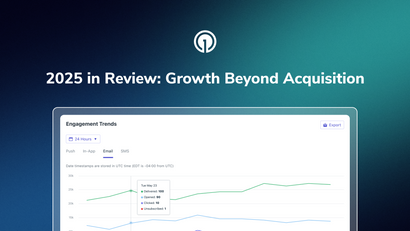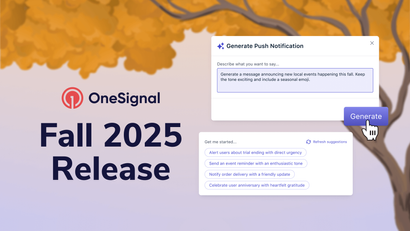As fellow marketers, we know you have a lot on your plate and not enough hours in the day. Between juggling multiple campaigns, getting the right visuals, and ensuring all teams are on the same page, it’s important to be able to locate what you need quickly. In our continued quest to provide the best user experience possible, we're excited to launch labels!
We’ve heard from our community that you need a better solution to organize and find campaigns across channels, especially when sending many different types of messages. With that in mind, we built labels to improve content discoverability and make organization painless in the dashboard.
Examples of Useful Labels to Create
Use Case
Categorize onboarding, retention, promotional, and other types of messages that are important to your messaging strategy.
Topic
Group campaigns by topics, such as Christmas Promotion, to quickly view past versions and make sure you’re not repeating the same content year-over-year. Topic labels also make it easier to see how the messages you've created have evolved over time.
Team
Tag content by different teams within your company or across different locations to designate ownership and make it easy for remote teams to locate their campaigns.
Geography
Organize messages by different regions or countries to make it easier to track your messaging strategy across different geographic regions.
Language
If you have a global user base and a variety of user communication preferences, add language tags to make it easy to locate translated content for specific markets.
Message Type
Using labels to differentiate between marketing and transactional messages can help you ensure that your messages abide by any relevant regulations and understand both aspects of your user experience at a glance.
Template Type
Label templates used in Journeys to make sure you don’t accidentally change your workflows.
Top Performers
Use labels to highlight messages that performed well to use as a guide and inspiration for future messages.
Best Practices for Managing Labels
Although we’ve built labels to be powerful and flexible to fit your needs, keeping labels consistent and up-to-date will help ensure that they work for you.
Tips for a Successful Labeling Strategy
- Create standards for when it makes sense to add a label.
- Agree on naming conventions for labels so that everyone on your team adheres to the same conventions.
- Make sure stakeholders and cross-functional partners are aligned and bought into the value of using labels.
- Plan ahead and brainstorm and map out the labels you want to use.
- Go time! Apply the labels in your OneSignal dashboard.
- Iterate and adjust as needed.
Labels are currently available for all OneSignal users, and you can learn more about how to add, edit, and filter in our documentation. We're launching with access to push notifications, email messages, and templates in the dashboard, with more to come. This is not available for API messages. Please reach out to support@onesignal.com with any feedback or requests.
Just getting started? Sign up for free, and see how easy it is for yourself.
Get Started for Free



